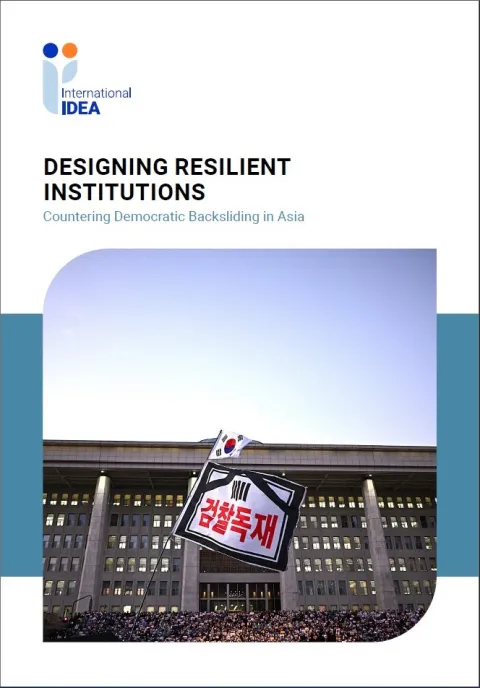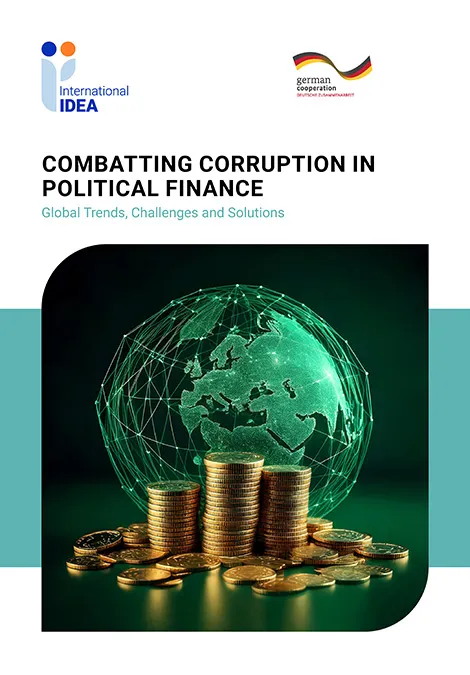International IDEA strongly applauds and congratulates the parties that signed the new Framework Agreement and appreciates the inputs from Sudanese stakeholders as well as the important support from particularly the trilateral negotiation team of the United Nations, African Union (AU) and the Inter-Governmental Authority on Development (IGAD).
Search
Region
Country
Type
International IDEA, in collaboration with the European Commission (EC) and the Youth Political and Civic Engagement Cohort of the Summit for Democracy (S4D), held on 15 November 2022, an online peer-to-peer dialogue, Promoting the role of youth in political and democratic spaces. The event explored commitments on youth presented by governments at the S4D, drawing lessons learnt and identifying opportunities for further engagement for the Year of Action.
Recientemente el Financial Times publicó un artículo sobre la pésima actuación económica de América Latina en la última década.
On 30 November 2022, International IDEA launched two new knowledge products under the Global State of Democracy Initiative:
La democracia, a escala global, está bajo asalto. La mayoría de ellas sufren acoso, otras están estancadas y un tercer grupo se encuentra en claro retroceso (backslinding).
En el marco de los Acuerdos de Esquipulas (1987), la democracia en Centroamérica fue la desesperada ruta de escape ante la inminente regionalización de la guerra promovida por la administración Reagan para aplastar las insurgencias en Nicaragua (triunfante) y El Salvador (asediando el régimen).
International IDEA’s Council of Member States, chaired by Canada, unanimously approved the United States of America to become an Observer to International IDEA on 1 December 2022.
Half of democratic governments around the world are in decline while authoritarian regimes are deepening their repression.
Esta nota de prensa está disponible en español.
The year 2020 was very challenging for electoral stakeholders and administrators Indonesia; direct local elections were held simultaneously in all regions of the country amid the Covid-19 pandemic. Compounding this challenge, the 2020 direct local elections were held on 9 December, which coincides with the peak period of the rainy season in Indonesia.
La mitad de los gobiernos democráticos del mundo están en declive mientras que los regímenes autoritarios profundizan su represión.
This press release is available in English
International IDEA’s Global State of Democracy 2022 Report has been published. Report editor and International IDEA's Head of Democracy Assessment, Seema Shah, provides an overview of the findings. Democracy is in decline around the world, undermined by problems ranging from restrictions on freedom of expression to distrust in the legitimacy of elections.
International IDEA organized the First Annual Retreat for Special Envoys and High Officials of ECOWAS and IGAD on Unconstitutional Changes of Government and Constitutional Transitions, from 21 to 23 October 2022 in Banjul, The Gambia.
This year's SDG16 Data Initiative Report , jointly produced by the SDG16 Data Initiative consortium, aims to evaluate global progress towards realizing Sustainable Development Goal 16—Promoting peaceful and inclusive societies for sustainable development.
Myanmar is rich in natural resources and a global biodiversity hotspot. Myanmar is also one of the countries worst affected by climate change and one of the least equipped to improve its resilience without external support. How to manage natural resources has always been at the heart of Myanmar’s history and learning how to manage economic development sustainably became a central question of Myanmar’s democratic transition.
A lo largo de su trayectoria política en búsqueda del poder que finalmente obtuvo en las elecciones presidenciales de 2018, el actual mandatario de México, Andrés Manuel López Obrador, construyó una base narrativa para convencer a su electorado sobre la base de que su triunfo había sido obtenido —no gracias, sino— a pesar de la actuación mostrada por las autoridades encargadas de organizar y vigilar al proceso comicial en su conjunto.
Recent media reports[1] [2] highlighted the worrying level of online harassment against poll workers around the 2022 United States mid-term elections. Ongoing work by International IDEA confirms that this phenomenon is not limited to the US.
سلطت تقارير وسائل الإعلام الأخيرة [1] [2] الضوء على المستوى المقلق للمضايقات عبر الإنترنت ضد العاملين في مجال الاقتراع حول انتخابات التجديد النصفي في الولايات المتحدة لعام ٢٠٢٢.


